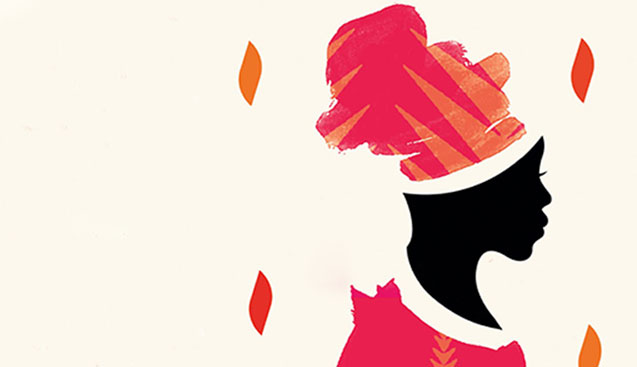Though it would be 13 more years before global warming really entered the public consciousness with the release of Al Gore’s An Inconvenient Truth, science fiction author Octavia E. Butler made waves in drawing public attention to the dangers of climate change with her 1993 novel Parable of the Sower. Now, as millions of people take to the streets to protest the fossil fuel industry, it’s never been more important to discuss Parable of the Sower and climate change.
This book tells the story of a young girl named Lauren Olamina who grows up in a town near Los Angeles in the mid-2020s. Climate change wrecked Lauren’s world, and it will take every bit of shrewdness and kindness for her to survive. Taking a closer look at Lauren’s story can help us as we brace for a world that may look very different in the coming decades.
What hyperempathy can teach us about the way we treat others
Early on in the book, we learn that Lauren suffers from a birth defect called hyperempathy. Hyperempathy forces a person with the condition to share in the pain and pleasures of others, and those born with it are called sharers.
At first, Lauren sees her condition as a curse, but as she encounters more and more human-caused suffering, she forms an appreciation for it. The ability to feel what others feel makes Lauren compassionate and leads her to help and protect those in need.
Also read: Parable of the Talents And Climate Change
In fact, Lauren eventually wishes more people were born with hyperempathy. She writes in her journal, “A biological conscience is better than no conscience at all.” If so many people seemed incapable of learning empathy, maybe the world would be better off if they were forced to feel it.
As natural disasters and various other humanitarian crises worsen in the years ahead, practicing empathy and compassion towards others will be crucial to our survival. While Lauren’s experience shows that empathizing with and being compassionate towards others is hard work, it may be one of the only actions we can take to preserve our humanity.
What Earthseed can teach us about resilience
In addition to having hyperempathy, Lauren also has many ideas about a religion she claims to have discovered. She calls this religion Earthseed and says its main tenet is “God is change.”
The God of Earthseed isn’t an actual entity or person like the Judeo-Christian God. Rather, Earthseed uses the term “God” to describe a fundamental and undeniable truth—in this case, change.
Has this info helped you?
Stories for Earth is and always will be a free resource to help people imagine brighter futures through the material we discuss. It’s also created and paid for by one person! Apart from occasional affiliate revenue, donations from people like you is the only way Stories for Earth remains financially feasible.
According to the verses of Earthseed Lauren writes in her journal, change isn’t something to fear or fight. Instead, it’s to humanity’s best advantage to adapt with change and to learn resilience. This makes sense in a world like Lauren’s that undergoes so much rapid change, but it doesn’t mean people should be totally passive, either.
Lauren also writes that just as changes in the universe affect humans, humans also affect changes in the universe. This seems paradoxical, but through this philosophy, we can empower ourselves to adapt to a changing climate while simultaneously working to mitigate its destructive effects.
What Acorn can teach us about community (spoilers ahead)
At the end of the book, Lauren and her husband found a community in Northern California called Acorn. This is supposed to be an incubator for Lauren’s religion, but Acorn residents don’t have to subscribe to Earthseed to live there.
As long as newcomers treat others with respect and work for the good of the community, they can stay. This builds upon Lauren’s belief in compassion and creates an opportunity for Acorn residents to form order out of the chaos that surrounds them.
This is one small step towards restoring balance to Lauren’s world. As she writes in her journal, “Civilization is to groups what intelligence is to individuals.” It’s often said that climate change intensifies the toughest challenges we already face. Remaining civilized by treating others with respect and resolving conflicts peacefully will help us work through these hardships without deteriorating into hysteria. It also teaches us how to be resilient.
According to the American Psychological Association (APA), the biggest element contributing to resilience is loving and supportive relationships. In “The Road to Resilience,” the APA writes, “Relationships that create love and trust, provide role models and offer encouragement and reassurance help bolster a person’s resilience.”
Like Lauren, most of the people who come to live in Acorn have lost family members, sometimes their entire families. By joining a community of people that care for each other and work towards a common goal, Lauren and the other Earthseed residents begin to heal from their trauma.
Octavia Butler has much more to teach us
Parable of the Sower is a powerful book about what could happen if we don’t address climate change in time, but it doesn’t end there. Octavia Butler published a sequel to this book in 1998 called Parable of the Talents. It, too, contains many valuable lessons for helping us resist forces that try to oppress us and threaten our existence.
Stay tuned for our analysis of Parable of the Talents by Octavia E. Butler, and be sure to subscribe to our podcast to stay up to date on new episodes.

